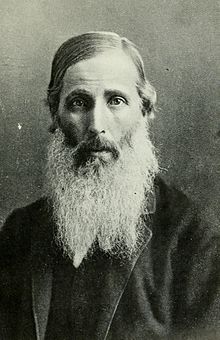Henry Sidgwick | |
|---|---|
 Sidgwick photographed by Elliott & Fry | |
| Born | 31 May 1838 |
| Died | 28 August 1900 (aged 62) Cambridge, Cambridgeshire, England |
| Nationality | English |
| Alma mater | Trinity College, Cambridge |
| Era | 19th-century philosophy |
| Region | Western philosophy |
| School | Utilitarianism |
| Institutions | University of Cambridge |
Main interests | Economics, ethics, political philosophy |
Notable ideas | Average and total utilitarianism, ethical hedonism, ethical intuitionism, paradox of hedonism |
| Political party | Liberal Unionist Party |
Henry Sidgwick (/ˈsɪdʒwɪk/; 31 May 1838 – 28 August 1900) was an English utilitarian philosopher and economist and is best known in philosophy for his utilitarian treatise The Methods of Ethics. His work in economics has also had a lasting influence.[1] He was the Knightbridge Professor of Moral Philosophy at the University of Cambridge from 1883 until his death.[2] He was one of the founders and first president of the Society for Psychical Research and a member of the Metaphysical Society and promoted the higher education of women.[3] In 1875, with Millicent Garrett Fawcett, he co-founded Newnham College, a women-only constituent college of the University of Cambridge. It was the second Cambridge college to admit women, after Girton College. In 1856, Sidgwick joined the Cambridge Apostles intellectual secret society.
- ^ Bryce 1903, pp. 327–342.
- ^ Schultz 2009.
- ^ Chisholm 1911.